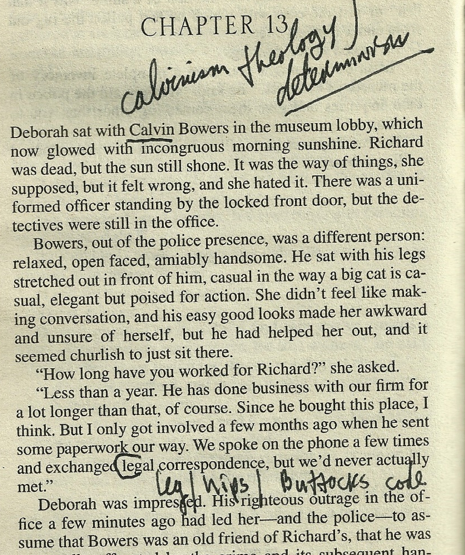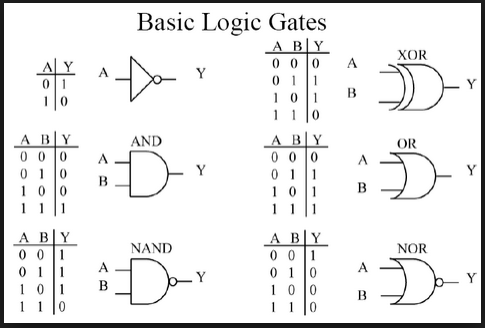Below,
explains key word concepts -->
Calvinism - Wikipedia
https://en.wikipedia.org/wiki/Calvinism
Calvinism (also called the Reformed tradition, Reformed Christianity, Reformed Protestantism, or the Reformed faith) is a major branch of Protestantism that follows the theological tradition and forms of Christian practice of John Calvin and other Reformation-era theologians.
Category:Calvinist and Reformed philosophers - Wikipedia
https://en.wikipedia.org/wiki/Category:Calvinist_and_Reformed_philosophers
Pages in category "Calvinist and Reformed philosophers". The following 50 pages are in this category, out of 50 total. This list may not reflect recent changes
What is Calvinism? | CARM.org
https://carm.org/what-is-calvinism
What is Calvinism?
definition of an electron volt (ev) and ev(il) -
Science Mission Dire
https://science.nasa.gov/science-news/science-at-nasa/2001/comment2_ast15jan_1
Jan 12, 2001 - George Lebo, University of Florida: "An electron volt (eV) is the energy that an electron gains when it travels through a potential of one volt.
Energetic Particles and Bull-shit particles - NASA
https://www-spof.gsfc.nasa.gov/Education/wenpart1.html
Nov 25, 2001 - The Electron Volt. There is a convenient unit to measure such energies, the electron volt (ev). It is the energy gained by an electron (or proton, ...
Shedding a New Light on the Universe - Electron Volt
https://heasarc.gsfc.nasa.gov/docs/xte/learning_center/universe/ev.html
Shedding a New Light on the Universe
The 63rd Miss Universe in Doral Miami January 25, 2015 - MiamiScapes
https://www.miamiscapes.com › Miami Events
The 63rd Miss Universe in Doral
The 63rd Miss Universe .....
CU = Copper equivalent .... bio-physics pussy electrons name
CU = CUNT ..... the terminology in the city of electri.CITY
The 63rd Miss Universe in D orbital expressions in
humanoid bio-electron format
code --> magnificent stone-head -->
the rock/stone/marble/granite atoms of the
BUSINESS buildings located in Chicago on the .....
The Magnificent Mile - North Michigan Avenue, Chicago
https://www.themagnificentmile.com/
If you are planning a trip to Chicago and want to know what things to do, things to see and places to visit this website is your guide to Chicago's Magnificent Mile.
code --> magnificent stone-head -->
the rock/stone/marble/granite atoms of the
BUSINESS buildings located in Chicago on the .....
Atomic
the building lobbies/ entrances of granite/marble atoms of heavy mass with strong gravity field pull
the rock/stone/marble/granite atoms of the
BUSINESS buildings located in Chicago on the .....
Atomic
.......Michigan Avenue .......
the building lobbies/ entrances of granite/marble atoms of heavy mass with strong gravity field pull
... pull data fields from the 2-legged walking human bio-data containers
on a summer day ....
thus the COMPUTER EARTH
..... the geological/stone buildings become living THINKING entities
...... comprised of the SUM of the people DATABASES absorbed
into Nature's systems ....
marble / granite atomic INTELLECTUAL unit.
The Magnificent Mile (Chicago) - 2018 All You Need to Know Before ...
https://www.tripadvisor.com/Attraction_Review-g35805-d109779-Reviews-The_Mag...
Book your tickets online for The Magnificent Mile, Chicago: See 13655 reviews, articles, and 2694 photos of The Magnificent Mile, ranked No.4 on TripAdvisor ...
The Magnificent Mile
John Calvin (/ˈkælvɪn/;[1] French: Jean Calvin, pronounced [ʒɑ̃ kalvɛ̃]; born Jehan Cauvin: 10 July 1509 – 27 May 1564) was a French theologian, pastor and reformer in Geneva during the Protestant Reformation. He was a principal figure in the development of the system of Christian theology later called Calvinism, aspects of which include the doctrines of predestination and of the absolute sovereignty of God in salvation of the human soul from death and eternal damnation, in which doctrines Calvin was influenced by and elaborated upon the Augustinian and other Christian traditions. Various Congregational, Reformed and Presbyterian churches, which look to Calvin as the chief expositor of their beliefs, have spread throughout the world.
Calvin was a tireless polemic and apologetic writer who generated much controversy. He also exchanged cordial and supportive letters with many reformers, including Philipp Melanchthon and Heinrich Bullinger. In addition to his seminal Institutes of the Christian Religion, Calvin wrote commentaries on most books of the Bible, confessional documents, and various other theological treatises.
Originally trained as a humanist lawyer, he broke from the Roman Catholic Church around 1530.
After religious tensions erupted in widespread deadly violence against Protestant Christians in France, Calvin fled to Basel, Switzerland, where in 1536 he published the first edition of the Institutes. In that same year, Calvin was recruited by Frenchman William Farel to join the Reformation in Geneva, where he regularly preached sermons throughout the week; but the governing council of the city resisted the implementation of their ideas, and both men were expelled. At the invitation of Martin Bucer, Calvin proceeded to Strasbourg, where he became the minister of a church of French refugees. He continued to support the reform movement in Geneva, and in 1541 he was invited back to lead the church of the city.
Following his return, Calvin introduced new forms of church government and liturgy, despite opposition from several powerful families in the city who tried to curb his authority. During this period, Michael Servetus, a Spaniard regarded by both Roman Catholics and Protestants as having a heretical view of the Trinity, arrived in Geneva. He was denounced by Calvin and burned at the stake for heresy by the city council. Following an influx of supportive refugees and new elections to the city council, Calvin's opponents were forced out. Calvin spent his final years promoting the Reformation both in Geneva and throughout Europe.
Calvin was a tireless polemic and apologetic writer who generated much controversy. He also exchanged cordial and supportive letters with many reformers, including Philipp Melanchthon and Heinrich Bullinger. In addition to his seminal Institutes of the Christian Religion, Calvin wrote commentaries on most books of the Bible, confessional documents, and various other theological treatises.
Originally trained as a humanist lawyer, he broke from the Roman Catholic Church around 1530.
After religious tensions erupted in widespread deadly violence against Protestant Christians in France, Calvin fled to Basel, Switzerland, where in 1536 he published the first edition of the Institutes. In that same year, Calvin was recruited by Frenchman William Farel to join the Reformation in Geneva, where he regularly preached sermons throughout the week; but the governing council of the city resisted the implementation of their ideas, and both men were expelled. At the invitation of Martin Bucer, Calvin proceeded to Strasbourg, where he became the minister of a church of French refugees. He continued to support the reform movement in Geneva, and in 1541 he was invited back to lead the church of the city.
Following his return, Calvin introduced new forms of church government and liturgy, despite opposition from several powerful families in the city who tried to curb his authority. During this period, Michael Servetus, a Spaniard regarded by both Roman Catholics and Protestants as having a heretical view of the Trinity, arrived in Geneva. He was denounced by Calvin and burned at the stake for heresy by the city council. Following an influx of supportive refugees and new elections to the city council, Calvin's opponents were forced out. Calvin spent his final years promoting the Reformation both in Geneva and throughout Europe.
Calvinism and Determinism | Analogical Thoughts
www.proginosko.com/2014/07/calvinism-and-determinism/
Jul 11, 2014 - For there are many different types of determinism. .... not argue here) that causal divine determinism is reflected in the writings of John Calvin, ...
Theological determinism - Wikipedia
https://en.wikipedia.org/wiki/Theological_determinism
Theological determinism is a form of determinism
which states that all events that happen are
pre-ordained, or predestined to happen,
by a God, or that they are ...
which states that all events that happen are
pre-ordained, or predestined to happen,
by a God, or that they are ...
Predestination in Calvinism - Wikipedia
https://en.wikipedia.org/wiki/Predestination_in_Calvinism
Predestination is a doctrine in Calvinism dealing with the question of the control that God ... John Calvin held a view on predestination sometimes referred to as "
Theological determinism
....... logical determinism
Theological determinism of Mr.Gates destiny
....... logical determinism
Robert M. Gates, Defense Secretary |
Council on Foreign Relations with Calvinism expression systems
https://www.cfr.org/backgrounder/robert-m-gates-defense-secretary
Heinrich Schliemann - Wikipedia
https://en.wikipedia.org/wiki/Heinrich_Schliemann
Jump to Life as an archaeologist - Heinrich Schliemann was a German businessman and a pioneer in the field of archaeology. He was an advocate of the ...
Influenced: Arthur Evans; V. Gordon Childe
Nationality: German
Heinrich Schliemann | German archaeologist | Britannica.com
https://www.britannica.com/biography/Heinrich-Schliemann
Heinrich Schliemann, in full Johann Ludwig Heinrich Julius Schliemann, (born January 6, 1822, Neubukow, Mecklenburg-Schwerin [Germany]—died December
Schliemann
Sch lie mann --> school lies/ errors / mistakes
END of explanation
▄▄▄▄▄▄▄▄▄▄▄▄▄▄▄▄▄






















No comments:
Post a Comment